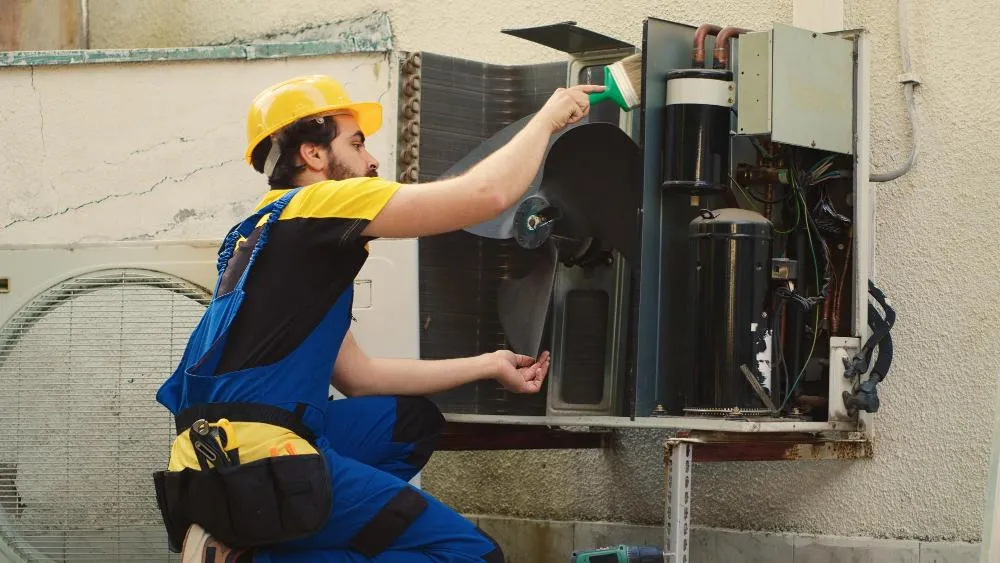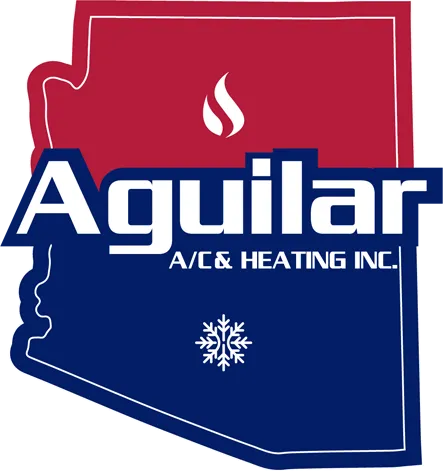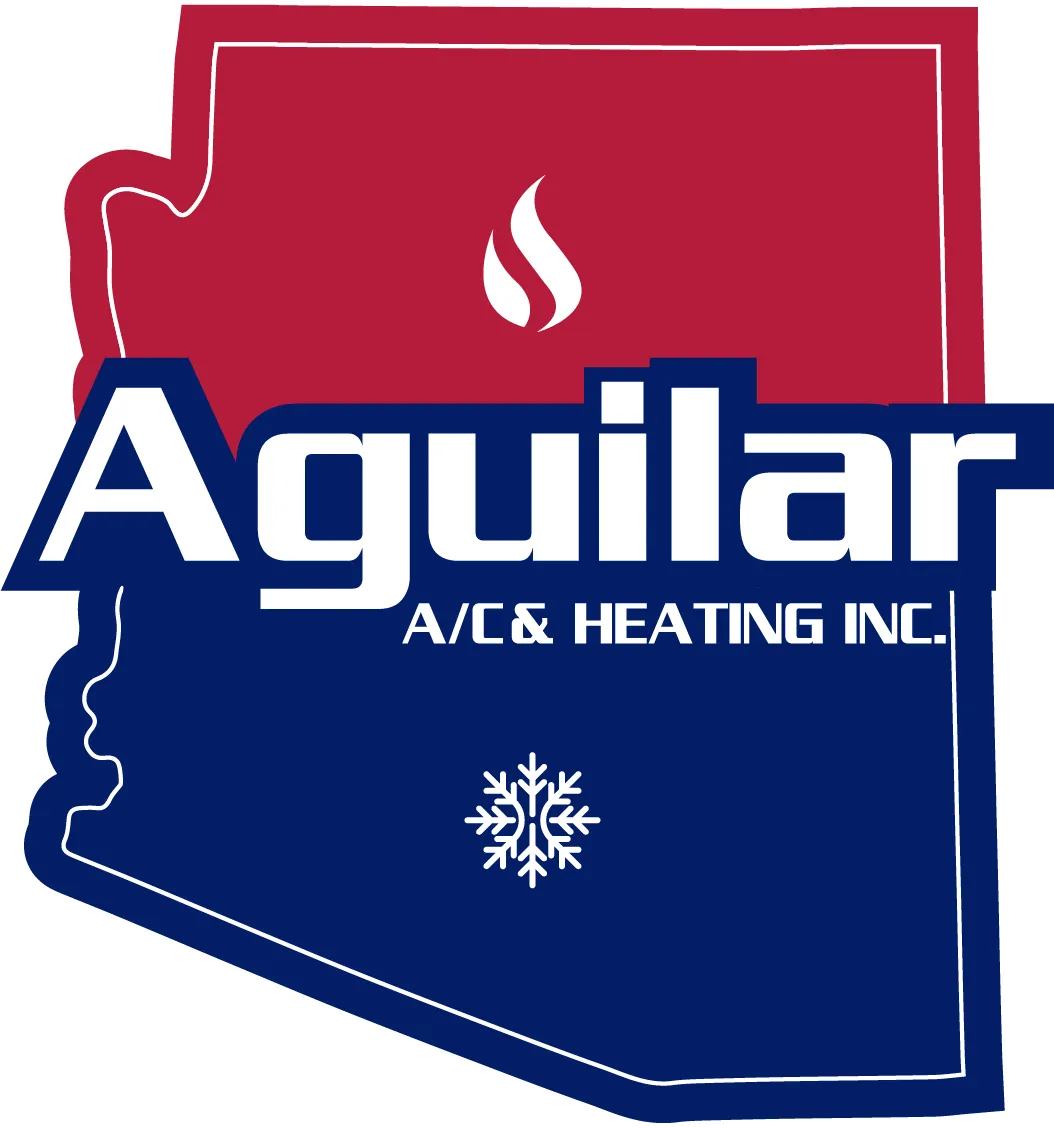Aguilar A/C & Heating
Blog

Seasonal AC Tune-Up Checklist Every Phoenix Homeowner Needs
If you’ve lived through a Phoenix summer, you know one thing for sure — your air conditioner isn’t just another appliance. It’s your lifeline. Yet, many homeowners don’t think about their AC until the first 100-degree day hits — and by then, it’s often too late.
A seasonal AC tune-up is the single most effective way to make sure your system doesn’t quit when you need it most. Think of it as preventive medicine for your home’s comfort system — a way to catch small issues early, improve efficiency, and keep your energy bills under control.
This guide breaks down what every Phoenix homeowner should include in their AC tune-up routine — and why skipping it can cost more than you think.
Why Seasonal Tune-Ups Are Essential in Phoenix
Phoenix’s desert climate is punishing on HVAC systems. Long cooling seasons, constant dust, and high outdoor temperatures all put extra stress on your air conditioner. That’s why tune-ups here aren’t optional — they’re essential.
Here’s why:
Efficiency drops fast: Even a thin layer of dirt on coils can reduce cooling efficiency by up to 15%.
Small issues multiply: Minor refrigerant leaks or loose wires can snowball into full system failures.
Energy bills rise: A poorly maintained unit works harder and runs longer, spiking your electric costs.
Breakdowns strike in peak season: Most AC failures happen in June and July — right when repair demand (and prices) surge.
An annual tune-up ensures your system can handle the heat before temperatures soar past triple digits.
The Complete Phoenix AC Tune-Up Checklist
Before the heat hits, use this checklist to prepare your system for summer.
Step 1: Start with Air Filters
Phoenix dust storms and dry air clog filters faster than most places. Dirty filters choke airflow, forcing your system to work harder and reducing air quality inside your home.
What to do:
Check filters monthly.
Replace them every 1–2 months (more often if you have pets).
Choose filters with a higher MERV rating for cleaner air.
Step 2: Clear Debris Around the Outdoor Unit
The condenser unit outside needs space to breathe. Trim plants, remove leaves, and clean off dust buildup. Restricted airflow around the condenser can cause overheating and poor cooling performance.
Pro tip: Keep at least two feet of clearance around the unit for proper ventilation.
Step 3: Inspect Coils and Fins
The evaporator and condenser coils are critical for heat transfer. When dirt builds up, your AC loses cooling efficiency. Bent fins can also block airflow.
A professional cleaning once a year keeps coils in top shape and helps prevent overworked compressors.
Step 4: Check the Thermostat Function
Before the first heatwave, test your thermostat’s accuracy. Set the temperature and see if your system responds correctly.
If you still use an older model, upgrading to a programmable or smart thermostat helps maintain stable temperatures and save energy throughout the day.
Step 5: Test Electrical Connections
Loose or corroded connections can cause voltage drops and shorten component life. A certified technician can safely tighten, inspect, and test connections to prevent electrical issues and costly repairs later.
Step 6: Flush the Condensate Drain Line
This simple task prevents one of the most common summertime problems — water leaks inside your home. When condensation can’t drain properly, it backs up into your system. A quick flush clears clogs and protects against mold or mildew.
Step 7: Check Refrigerant Levels
Low refrigerant is a silent energy waster. It forces your system to run longer and harder to achieve the same cooling. A technician can measure and refill refrigerant to restore optimal performance — and identify any potential leaks.
Step 8: Inspect Ductwork
Phoenix homes often deal with leaky or dusty ducts, especially older ones. Even a small gap can leak up to 30% of cooled air. Duct inspections ensure the air you pay for actually cools your home — not your attic.
Step 9: Schedule a Professional Tune-Up
While DIY maintenance helps, only a professional technician can perform a complete tune-up. This includes:
Motor and blower inspection
System efficiency testing
Coil and component cleaning
Refrigerant pressure checks
Safety and electrical inspections
In Phoenix, schedule your tune-up in spring (March–May) before summer peaks. This gives you priority service and avoids emergency repair costs later.
Bonus Tips to Stay Cool and Save Energy
Use ceiling fans: They improve circulation and let you raise the thermostat a few degrees without losing comfort.
Seal air leaks: Check around doors and windows to keep cooled air in.
Shade the outdoor unit: A shaded condenser can operate up to 10% more efficiently.
Enroll in maintenance plans: Many HVAC companies offer discounted tune-ups and priority repair service.
FAQs
How often should AC tune-ups be done in Phoenix?
At least once a year — ideally before summer. Some homeowners opt for biannual service (spring and fall) for year-round efficiency.Can I skip a tune-up if my AC is new?
Even new systems benefit from early maintenance. It preserves efficiency, validates warranties, and prevents early wear.Is a tune-up different from an AC repair?
Yes. A tune-up is preventive — focused on cleaning, inspection, and adjustments. Repairs fix problems that already exist.What’s included in a professional AC tune-up?
Typical tune-ups include filter replacement, coil cleaning, refrigerant checks, electrical testing, and thermostat calibration.Why is maintenance more important in Phoenix?
Extreme heat, long run times, and heavy dust create extra strain on HVAC systems here compared to other regions.
Conclusion
A seasonal AC tune-up isn’t just another task on your spring checklist — it’s an investment in comfort, savings, and peace of mind. With routine maintenance, you can reduce your risk of breakdowns, extend your system’s lifespan, and keep your Phoenix home cool all season long.
For professional AC tune-ups tailored to Arizona’s tough climate, Aguilar A/C & Heating provides trusted service that keeps your system running strong when the desert heat hits hardest.
Our Services
Helpful Links
Contact Information
Phoenix, AZ 85042
Business Hours
Mon - Fri: 8:00 am - 4:30 pm
Sat & Sun: Closed
© 2025 All Rights Reserved | Aguilar A/C & Heating

